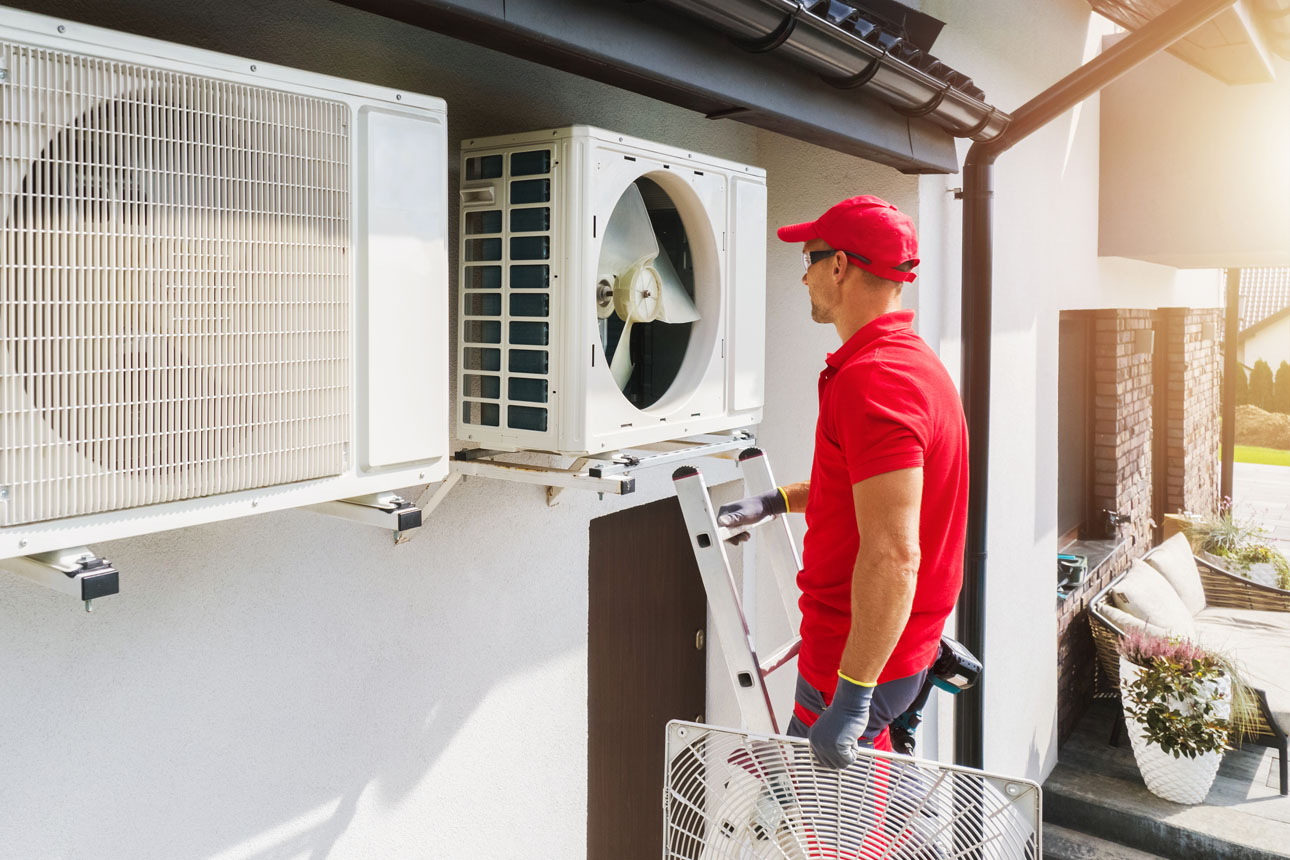The Importance of Annual Furnace Maintenance
LouAnn Sheldon October 18, 2023 7 min read

Having a working furnace is essential for keeping your home warm and comfortable during the cold winter months. However, like any mechanical system, furnaces require regular maintenance and care to ensure they continue operating safely and efficiently. Getting annual furnace service done by a professional technician is one of the most important things you can do as a homeowner. Here's why annual furnace maintenance is so critical.
Extend the Life of Your Furnace
Furnaces are significant investments expected to last 15-20 years or more with proper care. However, lack of maintenance can shorten your furnace's lifespan considerably. Annual maintenance helps preserve your furnace by identifying and addressing minor repairs before they become major issues.
During the maintenance visit, the technician will thoroughly inspect all components, check for leaks, lubricate moving parts, replace filters, and perform other preventative tasks. This proactive care reduces wear and tear and keeps your furnace running like new for longer. The small yearly investment in maintenance can help you avoid the high cost of premature furnace replacement.
Improve Energy Efficiency
An inefficient furnace forces your system to work harder than necessary, costing you more in energy bills. Annual maintenance helps optimize efficiency in several ways. The technician will clean the burners, check fuel pressure, test ignition, inspect ductwork, and more. Well-tuned components reduce energy waste by burning fuel cleanly and distributing heat evenly.
Replacing clogged air filters is one of the simplest ways to boost efficiency. Dirty filters make your furnace labor excessively to push air through. New filters remove dust and allergens, allowing air to flow freely. Keeping your furnace properly maintained year after year promotes optimal efficiency.
Enhance Safety
Faulty furnaces can create serious safety hazards. The high temperature, moving parts, and flames involved make gas leaks, carbon monoxide poisoning, fires, and explosions possible risks if something malfunctions. Trained technicians thoroughly inspect all aspects of your furnace during maintenance visits. They check your burners, heat exchanger, gas lines, exhaust venting, and safety controls.
Annual maintenance also involves monitoring carbon monoxide levels and testing safety shut-off switches. Any developing issues get repaired immediately before they evolve into unsafe situations. Proactive detection and prevention of hazards protects your home and family.
Prevent Unexpected Breakdowns
Furnaces are used heavily during frigid weather when heating is in high demand. Without maintenance, components are more apt to fail when you need them most. During a cold snap is the worst time to have your furnace break down unexpectedly. Supply companies get inundated with repair calls, leading to long wait times to get your furnace running again.
With annual service, technicians spot problems like cracks, corrosion, leakage, ignition failures, and more. Identifying issues before breakdown lets you schedule repairs at your convenience rather than face an emergency during freezing temperatures. Proactive maintenance provides peace of mind that your furnace will heat your home reliably all winter.
Improve Air Quality
Dirty furnaces circulate dust, dirt, and debris through your home's air ducts. Annual maintenance involves cleaning key components and replacing air filters. Proper cleaning removes trapped particles that could irritate allergies and asthma. Fresh filters ensure good indoor air quality by capturing contaminants.
Technicians can also detect signs of mold buildup during maintenance visits. Addressing any microbial growth preserves healthy air quality. Keeping your furnace clean through annual service provides cleaner, healthier air for you and your family to breathe.
Prolong the Life of Other Systems
Your furnace connects to ductwork, blowers, pipes, and other systems. A well-maintained furnace avoids prematurely wearing down interconnected components. Problems like corrosion, cracks, and leakage can damage ductwork, blowers, and pipes over time. Annual maintenance tunes up your furnace to operate smoothly, reducing strain on related parts. Keeping your furnace in top shape safeguards your other heating and cooling investments.
Save Money
While the cost of annual maintenance may seem unnecessary, it is a minor investment compared to the expense of emergency repairs or early replacement. Well-maintained furnaces have fewer problems, use less energy, and operate safely for years longer than neglected units. Preventing breakdowns also avoids the high cost of temporary heating solutions during long repairs.
Investing in maintenance saves you money over the lifetime of your furnace. One study found that homeowners spend 60% less on repairs within a decade when they get annual tune-ups. The little time and money required for yearly service pays big dividends through energy savings and prolonged furnace life.
When to Schedule Annual Service
Aim to have your furnace maintenance done in the spring or fall. Schedule spring services as the heating season ends, so your furnace is tuned up and ready for next winter. Fall checks prepare your system right before peak heating season. Technicians have more availability in spring and fall than wintertime.
Timing maintenance visits between heating cycles enables comprehensive inspection when the furnace is dormant. The most thorough cleaning and repairs occur off-season rather than hurried wintertime visits. Meet with your technician to determine the ideal time to have your annual service performed.
What to Expect During Maintenance
Furnace maintenance appointments typically last 1-2 hours. The technician will start by discussing your furnace's service history and any recent issues. Next, they'll perform a systematic inspection of all furnace components. Expect the following procedures during a standard maintenance visit:
- Inspect burner assemblies and clean with pressurized air
- Brush and vacuum heat exchanger surface
- Seal and insulate blower motor if needed
- Check fan control and lubricate moving parts
- Inspect and adjust blower components
- Test igniter and flame sensor
- Monitor flame color and pattern for optimum burn
- Assess combustion efficiency
- Check all gas lines for leaks
- Clean condensate drain and drain pan
- Replace air filter
- Check exhaust venting system
- Monitor carbon monoxide levels
- Inspect electrical connections
- Test safety shut-off controls
- Log combustion analysis readings
- Discuss any necessary repairs or replacements
Before leaving, the technician will review their inspection results and make recommendations. They can explain which repairs are optional and which are essential to do soon for safety and performance.
DIY Maintenance vs Professional Care
Homeowners sometimes try doing basic furnace maintenance themselves to save money. However, DIY maintenance has limitations compared to hiring a professional:
- Lack proper tools and training - Technicians use specialized diagnostic tools, cameras, testing instruments, and leak detectors you won't have as a homeowner. They receive extensive hands-on training you can't easily replicate.
- Less thorough inspection - You may miss subtle problems like small cracks, lad leaks, hot spots, and airflow issues without the right equipment, skills, and experience. These problems could lead to breakdowns or hazardous issues.
- Forfeit professional guidance - Technicians can explain which repairs are recommended versus optional. They provide experienced counsel to help prioritize maintenance needs that prolong your system's life.
- No licensing or accountability - Reputable companies have licensed technicians who stand behind their work. Mistakes made during DIY work have costly and dangerous consequences.
You can handle basic tasks like inspecting vents, changing filters, checking emergency shutoffs, and clearing debris near outdoor units. However, leave complete maintenance to qualified professionals for safety, performance, and peace of mind.
Signs You Need Furnace Service
Don't wait for full failure to call for furnace maintenance. Be proactive if you notice any of the following signs:
- Increased energy bills
- Furnace frequently turns on and off
- Strange smells near furnace
- Unfamiliar burning smells
- Loud or repetitive sounds during operation
- Pilot light frequently goes out
- No ignition
- Yellow or orange flames
- Uncomfortable temperature fluctuations
- Dust or cold air escaping ducts
- Visible cracks or rust spots
Scheduling prompt service prevents minor issues from cascading into major repairs. Don't ignore warning signs that something may be wrong with your furnace.
Furnace Maintenance Ensures Optimal Performance
Having your furnace professionally serviced each year is one of the wisest investments you can make as a homeowner. Yearly maintenance extends the life of your system, saves energy, enhances safety, improves air quality, avoids untimely breakdowns, and ultimately saves you money on repairs. Show your furnace some love by scheduling annual furnace maintenance to keep it running flawlessly season after season.

